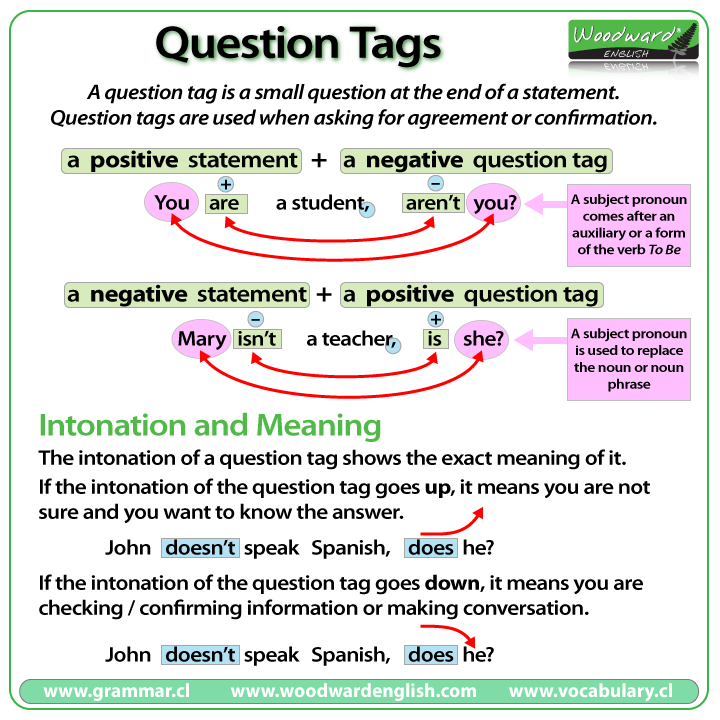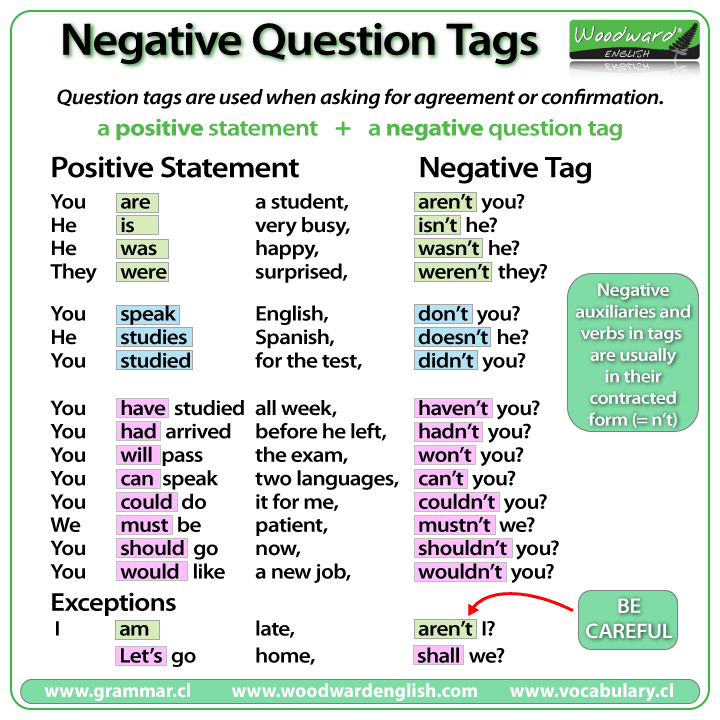
ENGLISH ACTIVITIES 2019
Aida y Bertha
NINTH GRADE PLAN DE APOYO
PARA LOS ESTUDIANTES
TEMA: personalities and mood



Let's practice!
Tag questions or question tag are the short questions that we put on the end of sentences – particularly in spoken English. These are formulated in order to confirm information or seek for agreement.
Rules
- Positive/negative
If the main part of the sentence is positive, the question tag is negative. Examples:
- He’s a doctor, isn’t he?
- You work in a bank, don’t you?
If the main part of the sentence is negative, the question tag is positive. Example:
- You haven’t met him, have you?
- She isn’t coming, is she?
- With auxiliary verbs
The question tag uses the same verb as the main part of the sentence. If this is an auxiliary verb (‘have’, ‘be’) then the question tag is made with the auxiliary verb. Example:
- They’ve gone away for a few days, haven’t they?
- They weren’t here, were they?
- Without auxiliary verbs
If the main part of the sentence doesn’t have an auxiliary verb, the question tag uses an appropriate form of ‘do’.
- I said that, didn’t I?
- You don’t recognize me, do you?
- With modal verbs
If there is a modal verb in the main part of the sentence the question tag uses the same modal verb.
- They couldn’t hear me, could they?
- You won’t tell anyone, will you?
- With ‘I am’
Note: it is really important to remember this exception. With sentences that start ‘I am’, the tag question is ‘aren’t I?’ This rule only applies when the first part of the sentence is affirmative. Example:
- I’m the fastest, aren’t I?
- I am not a good singer, am I?
Now, let's practice!



